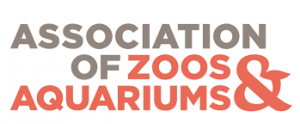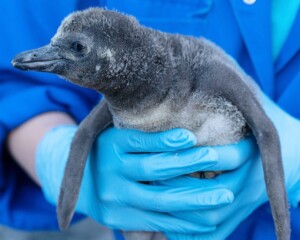AZA, the Association of Zoos and Aquariums, is circulating a Call to Action Letter alongside other wildlife experts to gather support and address the threat to native turtles in the US.
AZA has joined forces with Collaborative to Combat the Illegal Trade in Turtles (CCITT), the Partners in Amphibian and Reptile Conservation (PARC) and the Wildlife Trafficking Alliance (WTA) to circulate a Call to Action Letter in order to gather support for coordinated efforts to address the threat, ahead of World Turtle Day on Saturday 23 May.
Native turtles in the US are at risk as a result of poaching and trafficking, with wildlife experts worried that these activities could wipe out turtle populations. Conservation professionals, biologists, and wildlife law enforcement officials are calling for immediate action.
Native turtles at risk
There are 57 species of turtles in the US, with some that are not found anywhere else in the world. Removing these native species from the wild causes irreversible damage to both rare and common turtles.
“The turtle-trafficking crisis is an urgent conservation issue across the country, and we have to work together to confront it,” says Scott Buchanan, a herpetologist with the Rhode Island Department of Environmental Management and co-chair of CCITT.
“By working together to develop and align resources – law enforcement, scientific tools, housing capacity for confiscated turtles – we can optimize our response and help prevent future damage to these sensitive species.”
Turtles are vulnerable to over-collection, with some species needing to reproduce for their whole lives just to ensure one hatchling survives to adulthood. They must also face numerous threats before reaching reproductive ages, such as predators, habitat loss and vehicle traffic. So taking them from the wild, which some people are doing by the thousand, takes a huge toll.
There is evidence that illegal collection and trafficking has risen over the past few years, with recently prosecuted criminal cases involving organised black-market networks, and the exchange of hundreds of thousands of dollars in illicit trade.
A call to action
In the Call to Action Letter, these organisations are asking wildlife professionals to add their names in support of a set of priority actions for establishing a united front against the illegal capture of turtles. These are:
- Coordinate state regulations to help address current conservation risks to these species.
- Provide additional resources for wildlife law enforcement to prevent illegal collection and trafficking.
- Enhance public outreach that communicates the severity and scale of the crisis and works towards eliminating national and international demand for wild-collected turtles.
- Increase resources for emergency housing and care of confiscated turtles to relieve strain on law enforcement organizations.
- Implement science-based planning to guide housing, care, and management outcomes for confiscated turtles.
“Many AZA-accredited zoos and aquariums already work closely with law enforcement agencies to provide critical care and housing for victims of the illegal trade, including turtles,” says Dan Ashe, President and CEO of AZA.
“For this reason, we are glad to partner with CCITT and PARC to help raise awareness of turtle trafficking. Both the AZA SAFE: Saving Animals From Extinction (SAFE) American turtle program and the Wildlife Trafficking Alliance are committed to educating the public about the conservation and protection of turtles.”
AZA also recently announced that six new programmes have been added to its AZA SAFE: Saving Animals From Extinction initiative in the past year.















